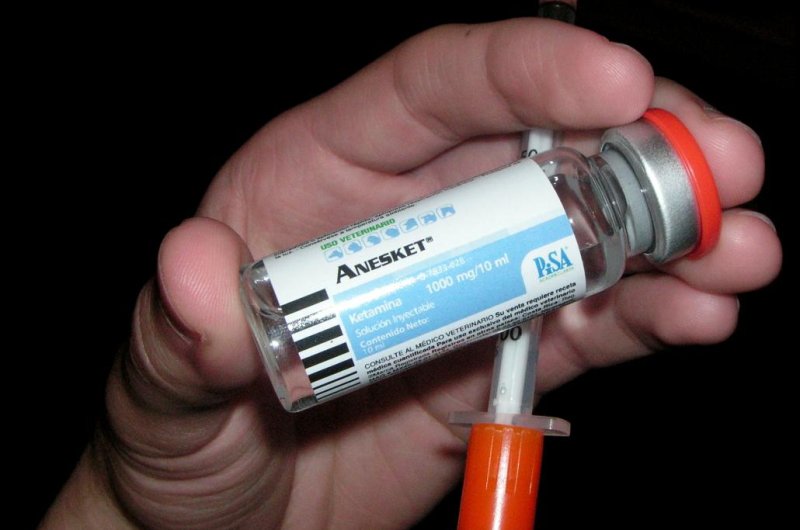Ketamine is meant to be used as an anesthetic, but it has shown promising results in treating depression, researchers and doctors say. Photo by Psychonaught/
Wikimedia Commons
Feb. 22 (UPI) -- Ketamine and related drugs may represent a "paradigm shift" as an antidepressant to rapidly treat major depressive disorder and bipolar depression, according to the National Institute of Mental Health.
In two reviews published Thursday in the Harvard Review of Psychiatry, researchers explained the benefits of ketamine, an anesthetic drug that also has a history of recreational use.
Used in powdered or liquid form, ketatine was listed as a Scheduled III controlled substance in 1999 by the Drug Enforcement Administration.
Research led by Dr. Carlos A. Zarate, Jr. lays out the fundamental change in patients undergoing treatment who don't respond to other treatments -- symptoms subside in hours instead of weeks, researchers wrote in the papers.
"Efforts are underway to bring ketamine to market, standardize its use and determine its real-world effectiveness," the researchers wrote one study, titled "Gluatmatergic Modulators in Depression."
A second article, titled "Ketamine-Associated Brain Changes: A Review of the Neuroimaging Literature," by Dr. Cristina Cusin, of Massachusetts General Hospital, and colleagues explores evidence on the mechanisms behind ketamine's rapid antidepressant effects.
Zarate and his researchers also explained the benefits of several other glutamatergic drugs. Esketamine has been given "breakthrough therapy" status by the Food and Drug Administration for patients at imminent risk of suicide.
The FDA has only approved ketamine as an anesthetic. But doctors are already employing ketamine in an off-label use for patients with severe or treatment-resistant depression. Ketamine has minimized symptoms in a matter of hours instead of weeks for other drugs, the doctors have reported.
Cusin reviewed 47 neuroimaging studies that evaluated ketamine's effects in the brain. Ketamine might "acutely disable" emotion resources that give depression symptoms, Cusin and her research team write, adding that the drug also increases emotional blunting and activity in reward processing.















